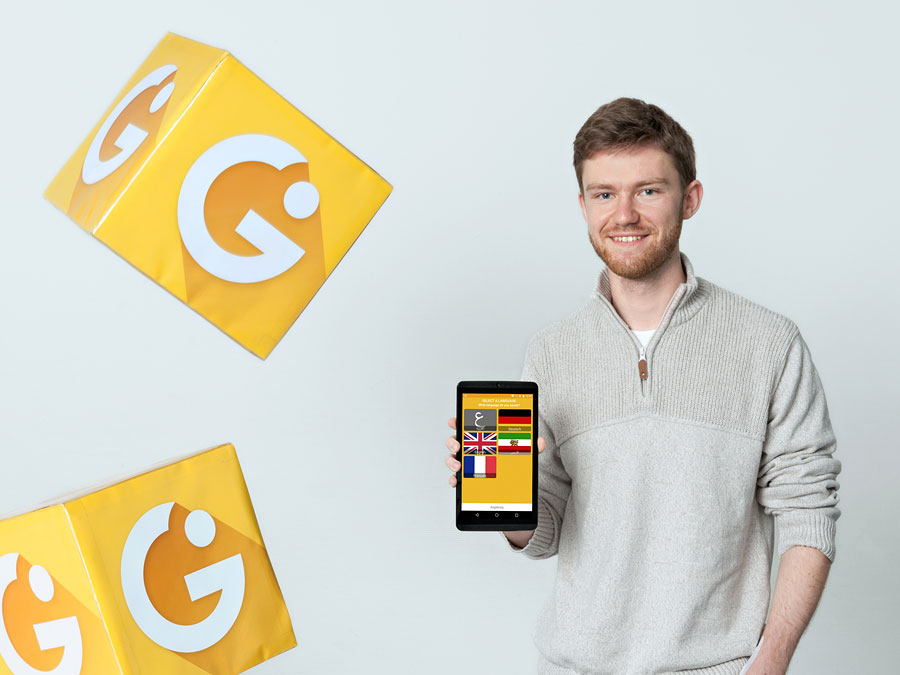“Integreat” – an app for refugees:
Instant help for the people

Martin, what exactly is “Integreat”?
Schrimpf: At TUM, we developed an app for refugees. It can be customized by the local authorities, and it aims to help refugees to get to know their way around in their new home. The users benefit from a compact overview of important information about their city – in many languages, such as Farsi and Arabic in addition to English and French. For example, the app lists local doctors, places to learn German or points of contact that offer help with bureaucratic problems.
How does your app work?
With the app, we developed the basic framework. All interested cities and municipalities in Germany can use our app for free and upload their own content. The refugees only need access to the Internet once, to download the app from the PlayStore to their smart phone – then, they can access the contents offline at any time. Augsburg, the first city, has been using the new portal for several weeks. Bad Toelz, Nuremberg, Düsseldorf and others have already expressed their interest.
Who exactly is involved in the development of Integreat?
The idea for the platform came from several TUM faculties. We are about a dozen students who developed the app, and we offer the local authorities a platform, a network and the know-how. As for the aspect of data sovereignty, the question what content is to be provided rests entirely with the administration. Basically, organizations such as the Caritas or “Tür an Tür” in Augsburg can upload their own content as well.
How come you decided to volunteer and help refugees?
I am convinced that it is important to have a digital solution in the current refugee issue. There are more and more decentralized refugee-accommodations, and their contact persons are having trouble to keep them up-to-date with important information. Almost everyone has a smart phone though, so that’s the way to get in contact with the people. We are pursuing a charitable idea and are trying to contribute to a long-term integration of refugees in Germany – beyond the “Welcome”-model. For me, it is important that the people are provided with instant help. Now, I am able to put to use what I learned at university.
What exactly are the measures you rely on to further integration?
The app is supposed to help the refugees to find their way through their city. We are trying to create a kind of a stage model. Depending on how long a refugee has already been living in Germany, his/her needs change over time. Someone who just arrived in Germany will most probably need a check-list focusing on administrative procedures and on places to learn German. After several years in Germany, one might be more concerned about how to find a job or in need of an idea where spend time with one’s children on weekends.
What are the future plans for Integreat?
First, we would like to establish a non-profit GmbH and create two full-time positions. Then, there are still over 100 items on our to-do list, regarding additional app-features we will be working on in the near future. In the long run, the project is supposed to follow a community-approach, meaning that we want it to become a self-perpetuating project to which anyone can contribute. We will only decide on the general direction, while the app is developed further on-site.
(Interview: Sabrina Czechofsky)
Martin Schrimpf (23) completed a Bachelor’s degree in Computer Science. Now, he is in his third Master’s semester of Software Engineering at TUM in Garching. The elite study course at TUM, the LMU and the University of Augsburg is funded by the “Elitenetzwerk Bayern”. From April onwards, he will be visiting Harvard for his Master’s thesis and conduct research on artificial intelligence at the Kreiman-Lab. “What is intelligence?” – That is the question Schrimpf is really interested in.